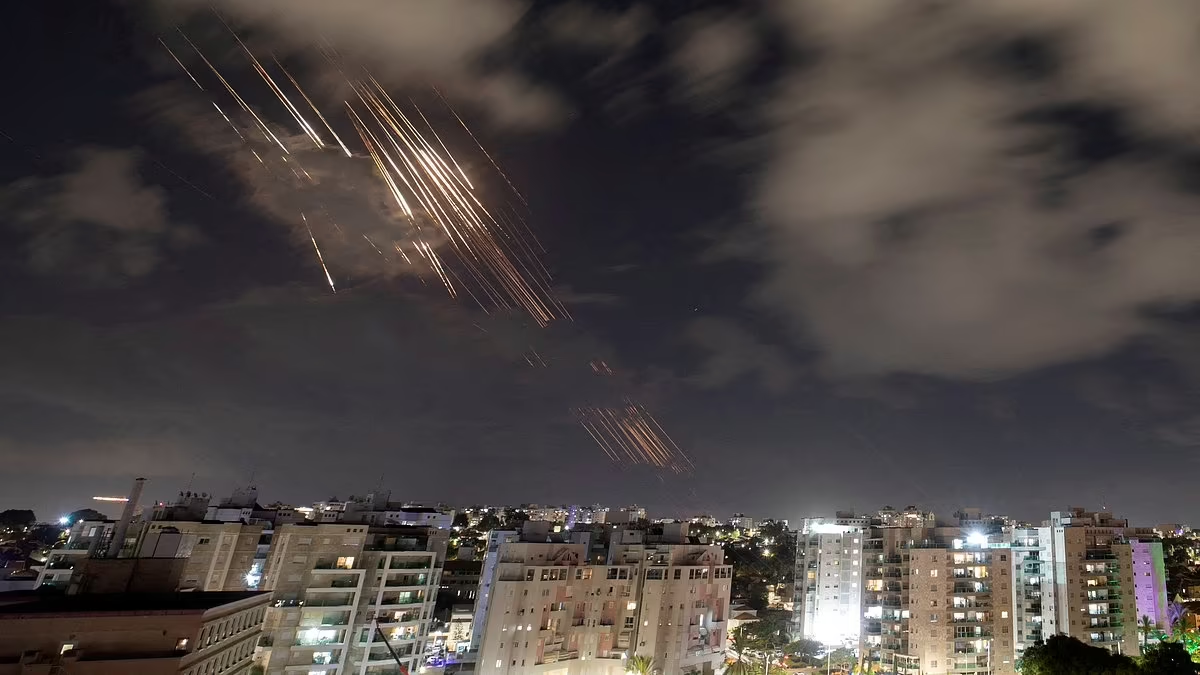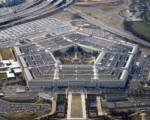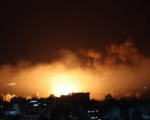Iran Claims Attack on Israel Concluded as Fears of Wider Conflict Grow

Iran has announced that its recent assault on Israel is over, following a series of missile strikes targeting Israeli military facilities. This attack, described by Iranian officials as a response to Israeli actions against Hezbollah and other militant leaders, reportedly involved more than 180 ballistic missiles aimed at three Israeli military bases. Iranian Foreign Minister Abbas Araqchi stated that any further Israeli provocations would lead to a stronger Iranian response.
The situation remains tense, as Israeli officials have vowed to retaliate significantly in the coming days, potentially targeting Iranian oil production facilities and other strategic sites. Prime Minister Benjamin Netanyahu warned that Iran would face consequences for what he termed a “big mistake.”
Despite calls for a ceasefire from the United Nations, the United States, and the European Union, clashes between Israel and Hezbollah continue. Israel has resumed airstrikes on Hezbollah strongholds in Beirut’s southern suburbs, conducting at least a dozen bombings while issuing evacuation orders for the area. Large plumes of smoke were visible as Israeli forces targeted locations believed to house Hezbollah assets. In retaliation, Hezbollah claimed to have confronted Israeli forces attempting to infiltrate the Lebanese town of Adaisseh.
The escalation of violence follows weeks of conflict, including Israel’s recent ground operations in Lebanon and ongoing hostilities in the Gaza Strip. U.S. Secretary of Defense Lloyd Austin confirmed that the U.S. was prepared to defend its interests in the region and that American naval forces had intercepted some of the missiles fired from Iran. The Pentagon noted that Iran’s missile assault was significantly larger than previous attacks, including an earlier strike in April.
Israeli military officials stated that most of the missiles launched by Iran were intercepted by Israeli air defenses and a coalition led by the United States. However, the use of hypersonic Fattah missiles by Iranian forces marked a dangerous escalation, with reports indicating that 90% of the missiles successfully hit their targets in Israel.
As fears mount that Iran and the U.S. could become embroiled in a broader regional conflict, President Joe Biden reaffirmed U.S. support for Israel, labeling the Iranian attack as “ineffective.” Vice President Kamala Harris echoed this sentiment, stating that the U.S. would not hesitate to act against Iran if necessary. Israel’s U.N. Ambassador, Danny Danon, promised a painful response to Iran’s actions.
In response to the ongoing situation, French President Emmanuel Macron condemned Iran’s attacks and announced the mobilization of French military resources in the Middle East. The United Nations Security Council convened to discuss the escalating conflict, while the European Union urged an immediate ceasefire. In South Korea, President Yoon Suk Yeol convened national security advisors to address potential impacts on energy supply due to the conflict.
The humanitarian toll has been severe, with nearly 1,900 casualties and over 9,000 injuries reported in Lebanon in the past year of conflict, most of which have occurred in the last two weeks.





















